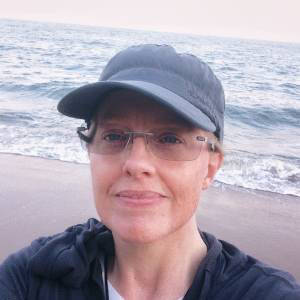I have blackberries too.
Hot and nasty but I can't whine about it because it was 108 in Portland today. What we were afraid of happened, there is a power outage. I hope our Portland friends are ok.
Some time ago I had a picture of pretty little flowers. I didn't know what the plant was even though I had clearly planted it but kwtracey later took a picture of flowers just like it and identified it as blackberries. I can't believe the wildlife are letting me have blackberries.
I have a derelict photo in the extra. If you are really glad the cicadas have left you should not look.
We had our monthly discussion about improving the well-being of LGBTI in developing countries. The reading for today was painfully boring. It seemed to be an extensive discussion by the author bashing the work of another feminist economist and it went on and on and on until I wondered if the feminist economist slept with the author's husband. [This group meeting was conducted on my personal time and has nothing to do with my employer and my comments on the boring article are not sanctioned by my employer. How am I doing so far?]
Fortunately the actual discussion was much more interesting.
- When people go through life they encounter difficult times and if they are lucky they can turn to their families for emotional or financial help. If they've been disowned they are far more vulnerable. They are emotionally more frail and they have no financial backup.
- My friend was able to find about 55 LGBTI self-help groups in developing countries. They are secretive and don't have LGBTI in their names, for obvious reasons. This makes collecting data difficult.
- Those organizations found that an increase in income increases standing in families - which makes complete sense to me - but also, obviously, only applies to families who don't toss the person out.
- The organizations in Latin America tend to focus on skills development, job hunting, and job fairs. The ones in Sub-Saharan Africa and south Asia focus on starting businesses and microfinance. We came up with several hypotheses to check to explain the difference.
I'm thinking this is one of the benefits of urbanization. It is easier for people to find and make new communities, "chosen family," to help each other in urban areas. In 2020 56% of the world lived in an urban area.
When I began working to bring electricity to rural areas, part of why this was considered a good thing is that it would encourage people to stay in rural areas and not be drawn away to bright city lights. The perception of cities was of slums and poverty.
Ten years ago or so when we hit the 50% mark I realized that it is much easier to provide education, health care, transportation, electricity, and clean water in urban areas.
On the downside, cities suffer from the urban heat island effect.
I write the most circuitous blip texts. I'm so glad you find them interesting and I love reading your thoughts.


Comments
Sign in or get an account to comment.


